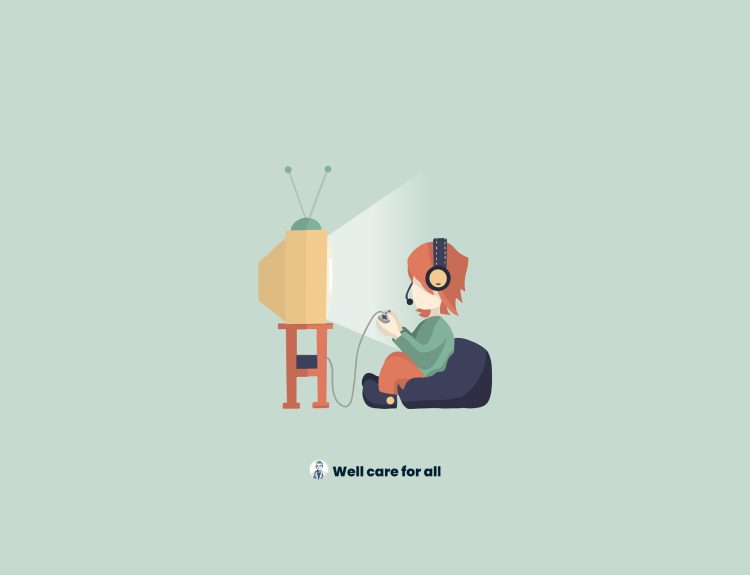
Stress is an inevitable part of life, affecting millions of adults worldwide. Stress, whether it’s caused by health issues, work, or personal struggles, can lead to physical and mental health problems, including anxiety, high blood pressure, and weakened immune function. Music has emerged as a powerful tool for effective stress management strategies. But does music truly help with stress relief? This article explores the science of music therapy, its psychological and physiological effects, and how adults can use music to manage stress in their daily routines better.
The Science Behind Music and Stress Reduction
Research has consistently shown that music can profoundly affect the brain and body. Listening to music can influence heart rate, cortisol levels, and even neural activity. Scientists have studied how music affects brain wave patterns and how musical elements such as tempo, pitch, and rhythm impact emotions and stress responses.
- Music and Cortisol Regulation: Cortisol is the primary stress hormone and significantly affects the body’s response to stress. Studies suggest calming music, such as classical or instrumental, can significantly lower cortisol levels, reducing stress and anxiety.
- Neurological Responses to Music: The brain processes music through the limbic system, which is responsible for emotions and memory. This is why certain songs can evoke strong emotional responses and provide comfort during stressful times. Dopamine, a hormone associated with relaxation and pleasure, is released more when you listen to music.
- Heart Rate and Blood Pressure Modulation: Slow-tempo music effectively regulates heart rate and lowers blood pressure, making it a valuable tool for relaxation and relieving anxiety. Research indicates that music with a tempo of 60 beats per minute can synchronize with brain waves to induce a relaxed state.
- The Role of Music in Mindfulness and Meditation: Many mindfulness practices incorporate music to deepen relaxation and promote focus. Whether through guided meditation or binaural beats, music has been found to enhance the effectiveness of stress-reducing techniques.
Types of Music That Help with Stress Management
While personal preference plays a role in music’s effectiveness, some genres are particularly beneficial for stress relief:
- Classical Music—Commonly known as the “Mozart effect,” classical music has been shown to promote relaxation and improve cognitive function. Its structured yet flowing nature can calm the nervous system.
- Nature Sounds with Music – Combining natural sounds, such as ocean waves or birds chirping, with soft instrumental music can create a calming atmosphere and mimic a natural relaxation response.
- Lo-Fi and Ambient Music—These genres provide a soothing background that enhances focus, reduces anxiety, and helps with relaxation without demanding much cognitive effort.
- Jazz and Blues – With their smooth rhythms and deep tones, jazz and blues can create a sense of emotional release and tranquility.
- Meditative and Binaural Beats – These sounds promote deep relaxation and mindfulness. Binaural beats, in particular, stimulate brainwave patterns associated with relaxation.
- Upbeat and Feel-Good Music – While slow and calming music is often recommended for stress relief, energetic and uplifting music can boost mood and provide an emotional release that reduces stress.
How to Incorporate Music into Daily Stress Management
To get better results in reducing stress, adults can incorporate it into their daily routine:
- Morning Relaxation: Start the day with soothing instrumental music to set a calm tone and reduce morning anxiety.
- Workplace Productivity: Play low-volume instrumental or classical music to improve concentration and reduce work-related stress.
- Exercise and Movement: Use upbeat music during workouts to enhance motivation and release endorphins, which counteract stress hormones.
- Mindfulness and Meditation: Combine music with breathing exercises or meditation for more profound relaxation and increased mental clarity.
- Bedtime Routine: Listening to soft music before bed can improve sleep quality by reducing nighttime anxiety and managing stress.
- During Commutes: Use relaxing or uplifting music during your commute to transition smoothly between work and home life, reducing travel-induced stress.
The Psychological Benefits of Music for Stress Relief
Beyond its physiological effects, music also plays a crucial role in emotional well-being. Listening to music can help:
- Enhance Emotional Processing: Music provides an outlet for emotional expression and helps individuals healthily process complex emotions.
- Create a Sense of Connection: Shared musical experiences, such as concerts or group singing, can foster community and support, reducing loneliness and social stress.
- Provide Distraction and Escape: Engaging with music can distract you from stressful thoughts and temporarily remove you from every day worries.
- Reduce Depression and Anxiety: Studies have proven that music therapy can play an important role in reducing anxiety and depression and provide an accessible and enjoyable form of emotional support.
FAQs About Stress Relief with Music
Q: Can music replace traditional stress management techniques?
A: Music can complement other stress management strategies, such as exercise, therapy, and mindfulness, but it may not be a standalone solution for severe stress or anxiety disorders.
Q: Is there a specific genre of music that works best for everyone?
A: No, music preferences vary from person to person. The key is to find music that personally resonates and promotes relaxation.
Q: How long should I listen to music for stress relief?
A: Even 10–15 minutes of listening can provide noticeable benefits, but longer sessions (30–60 minutes) may enhance relaxation effects.
Q: Can music help with stress-related health conditions?
A: Yes, studies have shown that music therapy can help manage conditions such as hypertension, anxiety disorders, and depression by reducing stress levels.
Q: Should I listen to music while working or studying?
A: It depends on the individual. Some people find instrumental music improves focus, while others may find it distracting.
Q: Are there any adverse effects of listening to music for stress relief?
A: While music is generally beneficial, loud or chaotic music can sometimes increase stress levels. Additionally, emotionally triggering songs may exacerbate negative feelings rather than relieve stress.
Conclusion
Music is a powerful, accessible, and non-invasive way to manage stress. By understanding its effects, adults can harness its therapeutic potential to improve their mental and physical well-being and incorporate it into their daily routines. Whether through classical melodies, nature-infused tunes, or calming beats, music can be a valuable ally in the fight against stress. Next time you feel overwhelmed, press play on your favorite relaxation track and let the music work its magic.
For those seeking to explore music therapy, consider creating personalized playlists tailored to different moods or stress levels. By intentionally selecting the correct type of music, you can take control of your stress response and promote a healthier, more balanced life.



